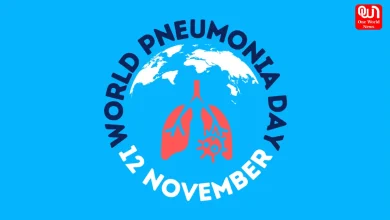9 Reasons Why Acts of Kindness Should Be Part of Schools’ Curriculum

Teach your kids “Acts of Kindness” for a peaceful society
A lot of times, we come across the phrase “Random Acts Of Kindness”, right? Be good to others, show your care and be kind. Don’t you think all these have become popular in the last few years? But how many of us actually practice kindness? Only talking about kindness will not make this world a better place. Well, kindness could perhaps be best explained by those who have learned the act of giving and passing it forward.

Schools are not only meant to make children learn about academic things but should make children learn about acts of kindness.
Scientific studies have shown that kindness has many physical and emotional benefits. Those children require a healthy dose of warmth to flourish as healthy, happy, well-rounded individuals. Acts of kindness not only make them beautiful souls, but they will benefit them too.
A significant number of benefits have been reported to support the theory of teaching kindness in schools:
- Happy Children: Science explains that the good feelings we experience when being kind are produced by endorphins that activate areas of the brain that are associated with pleasure, social connection and trust. It’s proven that these feelings of joy encourage more kind behaviour by the giver and recipient. Be kind to ensure everyone instead of being rude.
- Increased Peer Acceptance: Another critical reason. Research has determined that kindness increases our ability to form meaningful connections with others. Studies show that kind and happy children enjoy greater peer acceptance because they are well-liked. Every child wants to be accepted by others, so it’s better to make them kind.
- Mental health benefits: It’s widely documented that being kind can trigger a release of the hormone oxytocin, which has many physical and psychological health benefits, as it can significantly increase a person’s level of happiness and reduce stress.
- Improves Self-esteem: Studies show that people experience a ‘helpers high’ when they do a good deed, a rush of endorphins that creates a lasting sense of pride, well-being and an enriched understanding of belonging. Even small acts of kindness are reported to heighten our sense of well-being. It boosts our self-esteem.
- Increases Feeling of Gratitude: When children are a part of projects that help others less fortunate than themselves, it gives them a real sense of perspective and helps them appreciate the good things in their lives.
- Better concentration: Kind acts help children to feel good about them as it increases the level of serotonin. This important chemical affects learning, memory, mood, sleep, health and digestion. All this results in better concentration and better results. A positive outlook gives them an excellent attention span and enables more creative thinking to produce better results at school.
- Reduces Depression: Doing good deeds for others reduces the chances of depression in children. Doing good acts increases serotonin, a natural chemical responsible for improving mood.
- They bond better: The good feelings that a receiver and giver experience during the act is unique. When they care for someone, they become more joyful and compassionate.
- Effects of Bullying can be reduced: Teaching kindness in schools not only fosters a positive environment but also helps in reducing the effects of bullying. Compassion and kindness give a sense of belongingness to kids. Kindness cannot be learnt by only thinking and talking about it. Kindness is best known by feeling it so that people can reproduce it. In this cruel world, where there is so much negativity, it is essential to teach children the lesson of kindness right from the beginning.
Edit- Ayushi Mittal







